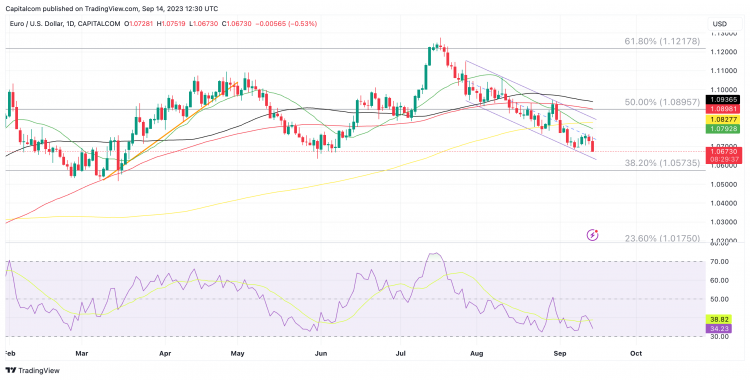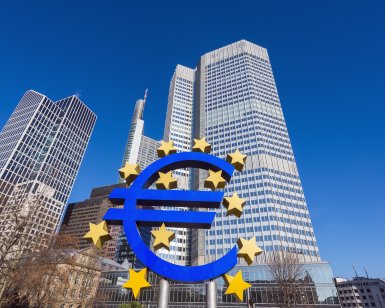The European Central Bank (ECB) has hiked its three key interest rates by 25bps in September. Market-implied pricing prior to the meeting was 65% in favour of a hike, but there was a lot of uncertainty as to whether it would happen. The most recent data has shown signs of a lagging economy with consumer sentiment deteriorating, which raised fears that further rate hikes could damage growth even further.

Eurozone CPI
But the ECB has decided to err on the side of keeping rates restrictive for as long as needed, to make sure inflation comes back down to its target level. But the takeaways from the policy statement give the feeling that this is a dovish hike, and there will likely be no more hikes in the immediate future. The following extract from Reuters’ coverage of the meeting makes that clear:
BASED ON ITS CURRENT ASSESSMENT, ECB CONSIDERS THAT INTEREST RATES HAVE REACHED LEVELS THAT, MAINTAINED FOR A SUFFICIENTLY LONG DURATION, WILL MAKE A SUBSTANTIAL CONTRIBUTION TO TIMELY RETURN OF INFLATION TO TARGET
The central bank has also pointed out that it remains data-dependent and will continue to monitor the economy, but it believes that the impact of previous tightening will start to become evident in inflationary measures. Because of the impact it will have on domestic demand, the central bank has lowered its growth projections for the next three years.
With regards to the Pandemic Emergency Purchase Programme (PEPP), the ECB intends to reinvest the principal payments from maturing securities purchased under the programme until at least the end of 2024.
The euro saw a kneejerk reaction higher, but the move has faded and the currency is now trading mostly lower after assessing that the central bank seems to have been slightly reluctant to hike.
EUR/USD has been trading in a descending channel for seven weeks and has been struggling to break above the mid-line of the channel, currently around 1.0750. The path of least resistance continues to be firmly lower, but a break below the lower bound of the channel (1.0640) is needed to confirm continued bearish appetite – especially as the RSI is starting to venture into oversold territory.









